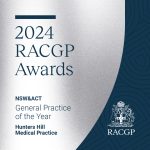Bone Mineral Density, Osteoporosis, and Prevention – Let’s take care of our bones!
Our bones are the strong scaffolding that supports our bodies, allowing us to move, stand tall, and go about our daily lives with ease. However, their strength isn’t a given throughout our lives. Bone density, the measure of how compact and strong our bones are, plays a crucial role in maintaining our overall health and well-being. In this blog, we’ll delve into bone density, the silent condition of osteoporosis, ways to manage it, and how a recent initiative at our practice, the Bone Bus, is making a difference in our community’s bone health.
Understanding Bone Density and Osteoporosis
Bone density refers to the amount of bone tissue in a certain volume of bone. In simpler terms, it’s the measure of how strong and dense your bones are. It’s an essential aspect of your overall health because low bone density can lead to a condition known as osteoporosis.
Osteoporosis is often called a “silent disease” because it progresses slowly and typically doesn’t exhibit symptoms until a fracture occurs. This condition weakens bones, making them brittle and more susceptible to fractures, even from minor falls or bumps. Osteoporosis is a serious health concern, especially among older adults, as it can result in significant pain, disability, and a decreased quality of life.
Ways to Manage Bone Density and Prevent Osteoporosis
The good news is that there are several steps you can take to manage your bone density and reduce the risk of developing osteoporosis:
- Dietary Choices: Calcium and vitamin D are vital for bone health. Ensure you have an adequate intake of these nutrients through dairy products, leafy greens, fortified foods, and supplements if necessary.
- Regular Exercise: Weight-bearing exercises like walking, jogging, and strength training help strengthen bones and increase bone density.
- Lifestyle Modifications: Avoid smoking and limit alcohol consumption, as these habits can contribute to bone loss.
- Bone Density Testing: Regular bone density tests, like dual-energy X-ray absorptiometry (DXA) scans, can assess your bone health and identify any early signs of bone loss.
- Medications: In some cases, your healthcare provider may recommend medications to slow bone loss or increase bone density.
The Bone Bus: A Mobile Bone Density Screening Initiative
At our practice, we are committed to promoting the health and well-being of our community. Recently, we partnered with the Bone Bus to make bone density testing more accessible to local patients. For three days, this mobile unit was stationed at our practice, offering bone density checks.
During this period, we were able to screen 150 patients, helping them take a proactive approach to their bone health. This initiative allowed us to identify individuals at risk for osteoporosis or those with early signs of bone density loss, providing them with valuable insights into their health and early intervention.
The Importance of Early Detection and Prevention
The Bone Bus is just one example of how early detection and prevention can make a significant impact on individuals’ lives. By identifying bone density issues in their early stages, we can implement strategies to prevent fractures and improve people’s capacity and function.
Prevention is always better than treatment, especially when it comes to conditions like osteoporosis. Regular bone density checks are a vital part of preventive healthcare. Just as you would visit your doctor for routine check-ups, it’s essential to discuss your bone health with your GP. If you’re at risk or concerned about your bone density, don’t hesitate to ask for a bone density test.
The Multidisciplinary team available at HHMP to support patients at risk of falls and fractures
- GPs – all can help with screening and general advice
- Registered Nurses – help with recalls for injectable medications and administration of medications
- Care coordinator – to educate patients and complete health assessments and care plans
- Endocrinologists – to help identify more complex medical and hormone issues such as parathyroid conditions and offer medical treatments for these
- Dietitian – to help with appropriate food intake including calcium and vitamin D
- Physiotherapists to help with strength, conditioning, balance and falls prevention
- Podiatrists to help with appropriate shoes selection and preventions of slips and falls
Conclusion
Our bones are the silent heroes that support us throughout our lives. Understanding bone density, recognizing the risks of osteoporosis, and taking proactive steps to manage your bone health can significantly enhance your overall well-being. Initiatives like the Bone Bus underscore the importance of early detection and prevention in ensuring strong, healthy bones for years to come. Remember to consult with your healthcare provider and discuss your bone density as part of your regular healthcare routine. Your bones will thank you for it, and you’ll be well on your way to a healthier, more mobile future.






